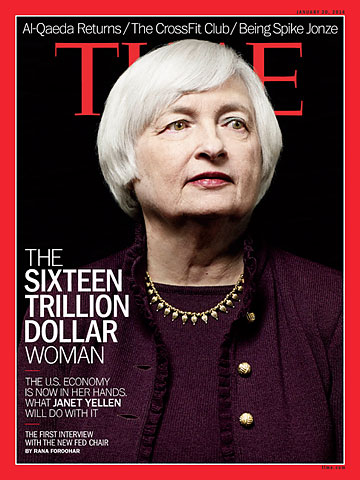
(4 of 7)
Yellen and Akerlof also teamed up as economists, conducting groundbreaking research that blended their work and family experiences. One of their most talked-about papers at Berkeley, on why lower wages don't always lead to higher employment, came from the experience of hiring a nanny for the first time. "Firms are not always willing to cut wages, even if there are people lined up outside the gates to work. So why don't they?" asks Yellen. The couple's conclusion: some employers set pay higher to demonstrate that they value employees in a way that motivates them to do good work, even when markets are ready to undercut those wages. As any parent paying more than market rates for a nanny knows, child care is a labor market in which the conventional wisdom doesn't always hold. "When you hire a nanny, the question you ask yourself is, What's best for my precious child? And do you really want someone who feels that your motive in life is to minimize the amount you spend on your child?" The paper illuminated not only the fact that salaries can be higher than expected but also that human emotions matter in the labor market. Indeed, unlike most other central bankers, Yellen has embraced the young field of behavioral economics, which is all about how Adam Smith's "rational man" is very often led by his emotions, leading to very different economic decisions from what might be expected by traditional theory.
What comes through very clearly is Yellen's refreshing kitchen-table realism and her eagerness to question and seek the truth--wherever it might be found. Despite her reserved ways, she has never been afraid to challenge authority. University of Michigan economist Jim Adams remembers how Yellen, with whom he overlapped briefly at Harvard, helped him take on the head of their department on an issue concerning monopoly pricing. The result was a co-authored paper inspired by the diner scene in the movie Five Easy Pieces, in which Jack Nicholson's character asks for toast and is told that it doesn't come with his order. O.K., says Nicholson, who then orders "a chicken-salad sandwich on wheat toast, no mayonnaise, no butter, no lettuce," and hold the chicken. The paper shed light on why companies try to bundle services instead of selling them separately, and the results helped shape the telecommunications industry. "Janet has the temperament of a real scholar. She's not one of those economists for whom believing is seeing," Adams says. "She's open to argument. She collects information patiently and unbiasedly. So when she's ready to make a call, she doesn't have to rely on intellectual bombast or intimidation. If she were engaged in international relations, I suppose you would call this the projection of soft power. And that's the kind of power that endures."
NICE GUYS DO FINISH FIRST
